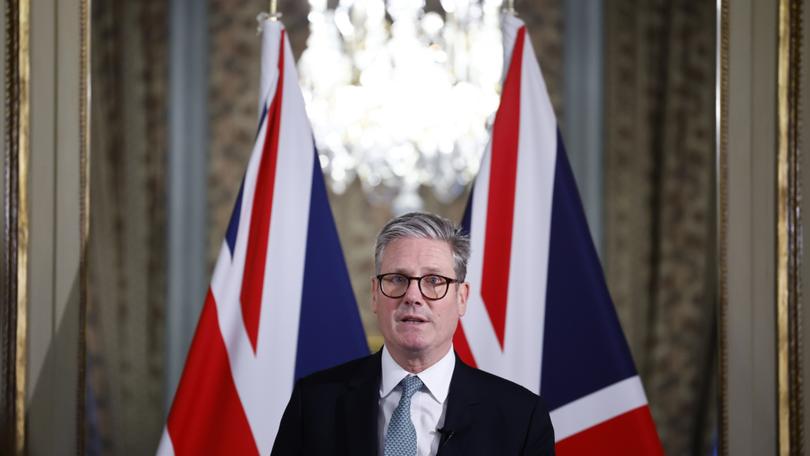UK defence spending: Prime Minister Sir Keir Starmer announces 2.5 per cent GDP boost ahead of White House visit

The United Kingdom will raise defence spending to 2.5 per cent of GDP by 2027 and target 3.0 per cent in the longer term by cutting its overseas development budget, Prime Minister Keir Starmer says.
“This government will begin the biggest sustained increase in defence spending since the end of the Cold War,” Sir Starmer told parliament.
“We must go further still. I have long argued that ... all European allies must step up and do more for our own defence,” he said, signalling the UK would set a target for spending 3.0 per cent of gross domestic product in the next parliament, which will convene after a general election due in 2029.
Sign up to The Nightly's newsletters.
Get the first look at the digital newspaper, curated daily stories and breaking headlines delivered to your inbox.
By continuing you agree to our Terms and Privacy Policy.He said the increase will mean spending 13.4 billion pounds ($A26.7 billion) more every year from 2027.
The UK’s defence ministry said it spent 53.9 billion pounds in the 2023/24 financial year.
The shift in the UK’s defence strategy comes before Sir Starmer flies to the United States to meet President Donald Trump on Thursday, who has repeatedly called for NATO members like the UK to spend more on defence.
European leaders were stunned earlier this month when Mr Trump’s administration made clear that Europe would need to step up to provide its own security, sparking a bout of diplomatic activity.
Sir Starmer said that difficult choices needed to be made in the interest of the country’s security and he would fund the increased spending on the military by cutting the aid budget from 0.5 per cent of GDP to 0.3 per cent in 2027.
“We will also set a clear ambition for defence spending to rise to three per cent of GDP in the next parliament,” he added.
Successive UK governments have reduced spending on defence since World War II and the Cold War, as they stepped up investment in health, welfare and education instead.
The UK last spent 3.0 per cent of GDP on defence in 1993/94.
David Miliband, a former foreign secretary from the governing Labour Party and now head of the International Rescue Committee charity, said the move was “a blow to Britain’s proud reputation as a global humanitarian and development leader”.
Romilly Greenhill, chief executive of London-based Bond, a network for humanitarian organisations, said it was “a short-sighted and appalling move”.
“Slashing the already diminished UK aid budget to fund an uplift in defence is a reckless decision.”
But Sir Starmer’s announcement on aid was met with little immediate political criticism in the House of Commons. Sarah Champion, Labour lawmaker and chair of the International Development Select Committee, was a rare voice opposing the move, saying aid spending could prevent wars.
“Aid vs defence isn’t a realistic narrative for keeping the world safe,” she said.
